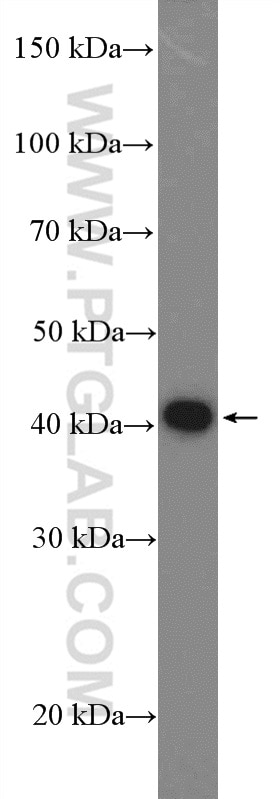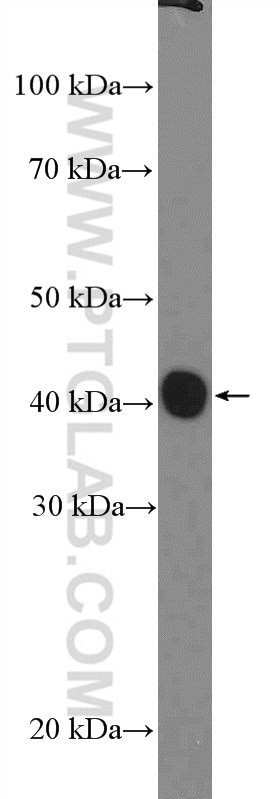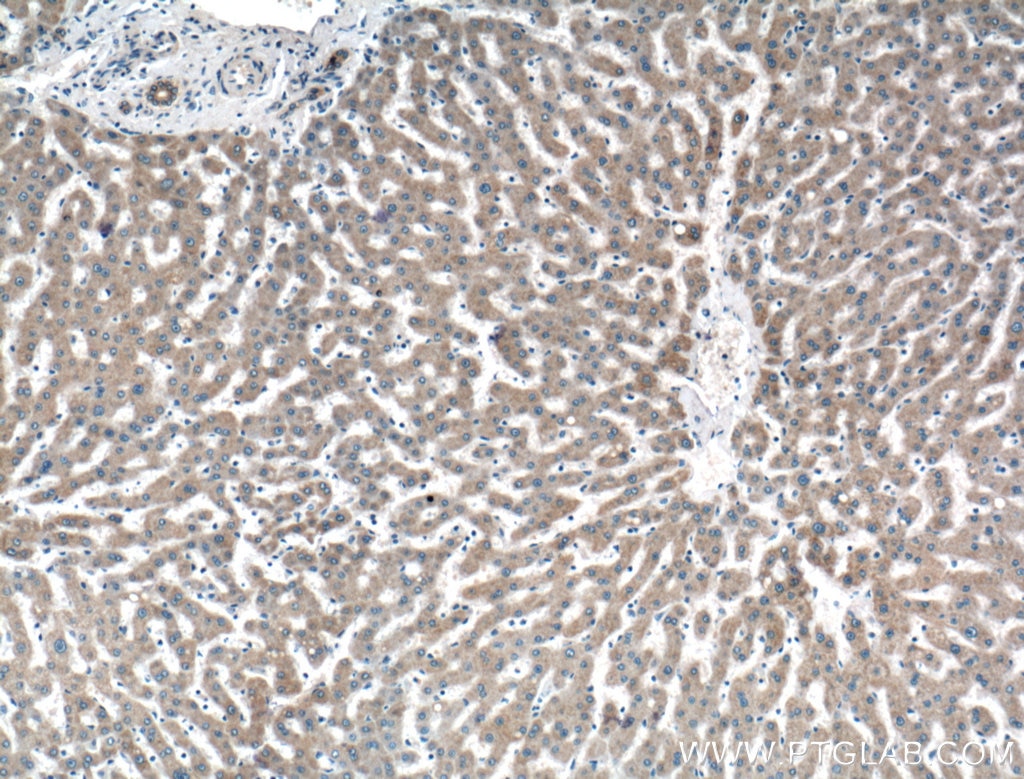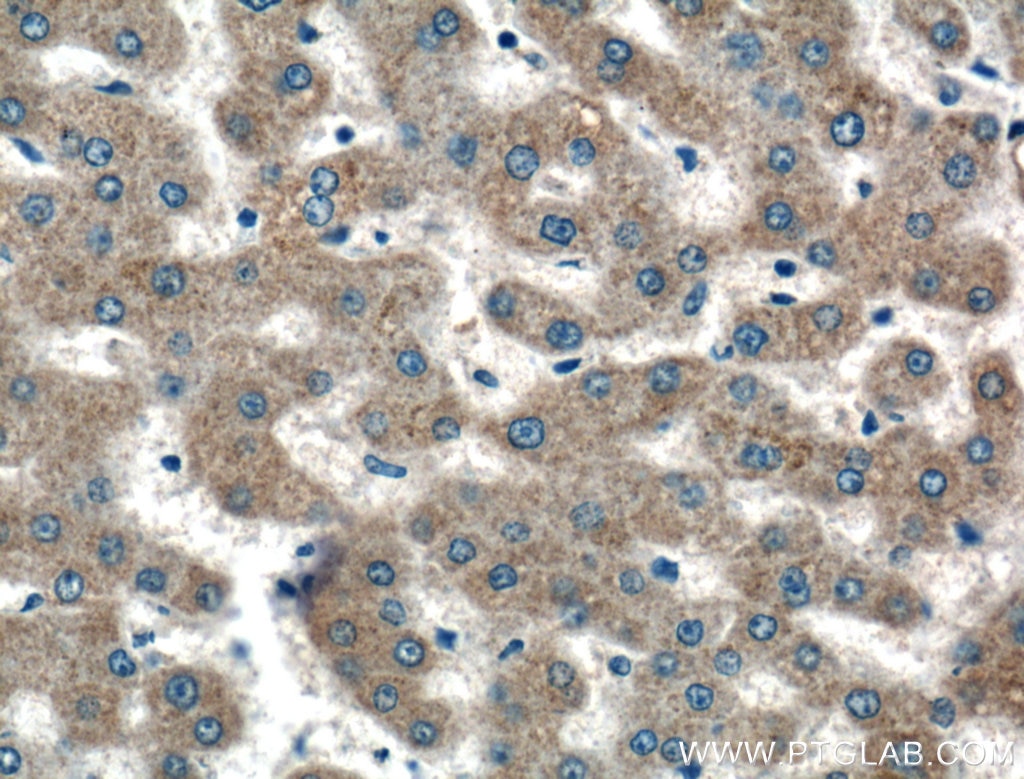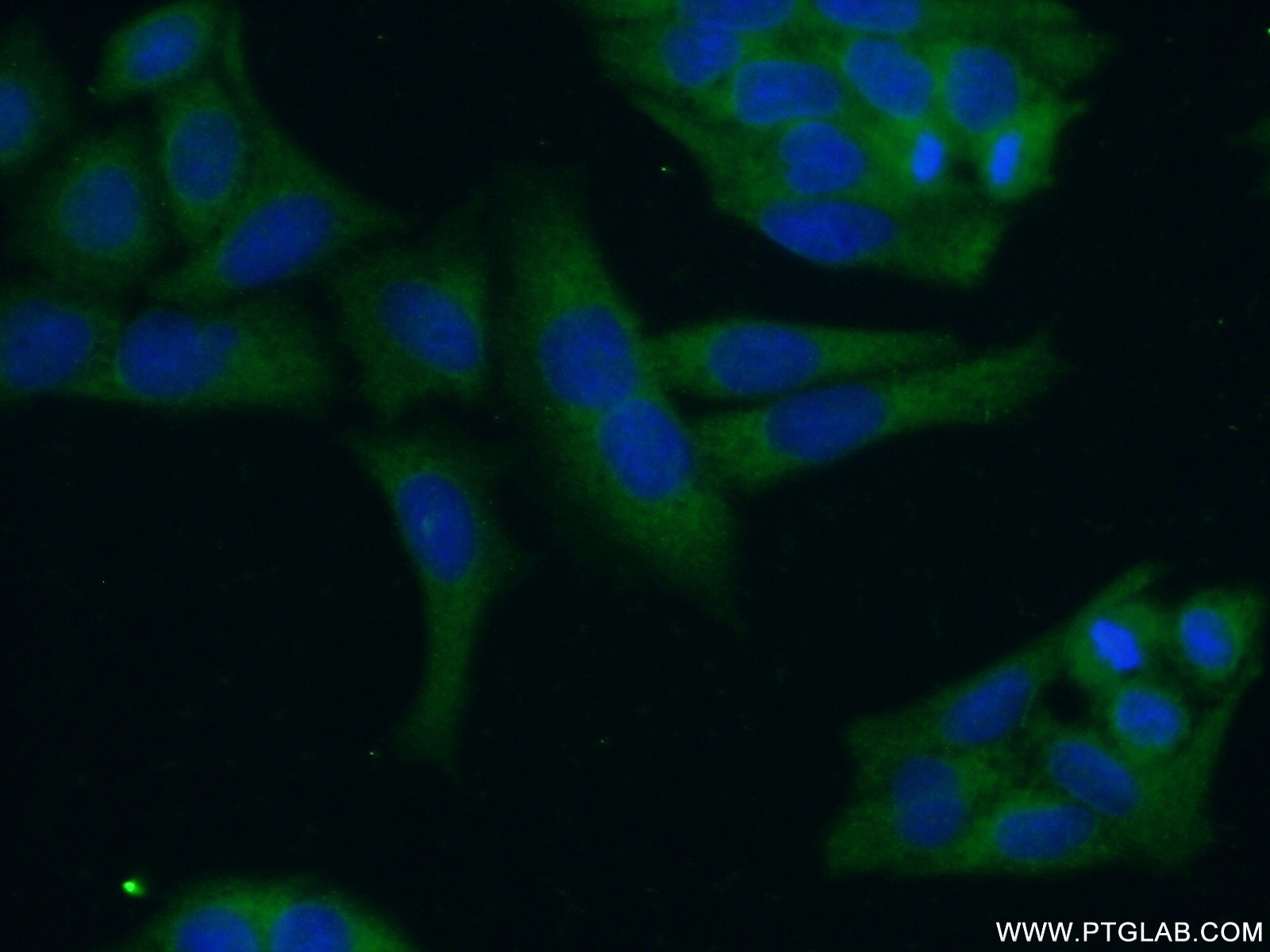- Phare
- Validé par KD/KO
Anticorps Polyclonal de lapin anti-PRAS40
PRAS40 Polyclonal Antibody for WB, IHC, IF/ICC, ELISA
Hôte / Isotype
Lapin / IgG
Réactivité testée
Humain et plus (1)
Applications
WB, IHC, IF/ICC, ELISA
Conjugaison
Non conjugué
N° de cat : 21097-1-AP
Synonymes
Galerie de données de validation
Applications testées
| Résultats positifs en WB | cellules MCF-7, cellules HeLa |
| Résultats positifs en IHC | tissu hépatique humain, il est suggéré de démasquer l'antigène avec un tampon de TE buffer pH 9.0; (*) À défaut, 'le démasquage de l'antigène peut être 'effectué avec un tampon citrate pH 6,0. |
| Résultats positifs en IF/ICC | cellules HeLa |
Dilution recommandée
| Application | Dilution |
|---|---|
| Western Blot (WB) | WB : 1:500-1:2000 |
| Immunohistochimie (IHC) | IHC : 1:50-1:500 |
| Immunofluorescence (IF)/ICC | IF/ICC : 1:50-1:500 |
| It is recommended that this reagent should be titrated in each testing system to obtain optimal results. | |
| Sample-dependent, check data in validation data gallery | |
Applications publiées
| KD/KO | See 1 publications below |
| WB | See 3 publications below |
| IF | See 1 publications below |
Informations sur le produit
21097-1-AP cible PRAS40 dans les applications de WB, IHC, IF/ICC, ELISA et montre une réactivité avec des échantillons Humain
| Réactivité | Humain |
| Réactivité citée | Humain, souris |
| Hôte / Isotype | Lapin / IgG |
| Clonalité | Polyclonal |
| Type | Anticorps |
| Immunogène | PRAS40 Protéine recombinante Ag15355 |
| Nom complet | AKT1 substrate 1 (proline-rich) |
| Masse moléculaire calculée | 27 kDa |
| Poids moléculaire observé | 40 kDa |
| Numéro d’acquisition GenBank | BC051844 |
| Symbole du gène | PRAS40 |
| Identification du gène (NCBI) | 84335 |
| Conjugaison | Non conjugué |
| Forme | Liquide |
| Méthode de purification | Purification par affinité contre l'antigène |
| Tampon de stockage | PBS with 0.02% sodium azide and 50% glycerol |
| Conditions de stockage | Stocker à -20°C. Stable pendant un an après l'expédition. L'aliquotage n'est pas nécessaire pour le stockage à -20oC Les 20ul contiennent 0,1% de BSA. |
Informations générales
PRAS40 (40 kDa proline-rich AKT substrate) is also named as AKT1S1 (Proline-rich AKT1 substrate 1). PRAS40 is a substrate of Akt and a component of the mammalian target of rapamycin complex 1 (mTORC1) (PMID: 28978182). Locating at the crossroad of the PI3K/Akt pathway and the mTOR pathway, PRAS40 is phosphorylated by growth factors or other stimuli, and regulates the activation of these signaling pathways in turn (PMID: 28978182). PRAS40 is expressed in a variety of tissues in vivo and has multiple phosphorylation sites, which its activity is closely related to phosphorylation. Studies have shown that PRAS40 is involved in regulating cell growth, cell apoptosis, oxidative stress, autophagy and angiogenesis, as well as various of signalling pathways such as mammalian target of mammalian target rapamycin (mTOR), protein kinase B (PKB/Akt), nuclear factor kappa-B(NF-κB) proto-oncogene serine/threonine-protein kinase PIM-1(PIM1) and pyruvate kinase M2 (PKM2) (PMID: 33504218).
Protocole
| Product Specific Protocols | |
|---|---|
| WB protocol for PRAS40 antibody 21097-1-AP | Download protocol |
| IHC protocol for PRAS40 antibody 21097-1-AP | Download protocol |
| IF protocol for PRAS40 antibody 21097-1-AP | Download protocol |
| Standard Protocols | |
|---|---|
| Click here to view our Standard Protocols |
Publications
| Species | Application | Title |
|---|---|---|
Nat Commun Hypothalamic SLC7A14 accounts for aging-reduced lipolysis in white adipose tissue of male mice | ||
J Neuroinflammation Sexually dimorphic extracellular vesicle responses after chronic spinal cord injury are associated with neuroinflammation and neurodegeneration in the aged brain | ||
Front Oncol The Molecular Landscape and Biological Alterations Induced by PRAS40-Knockout in Head and Neck Squamous Cell Carcinoma.
| ||
Mol Cell Oncol Silencing Glypican-1 enhances the antitumor effects of Pictilisib via downregulating PI3K/Akt/ERK signaling in chemo-resistant esophageal adenocarcinoma |
